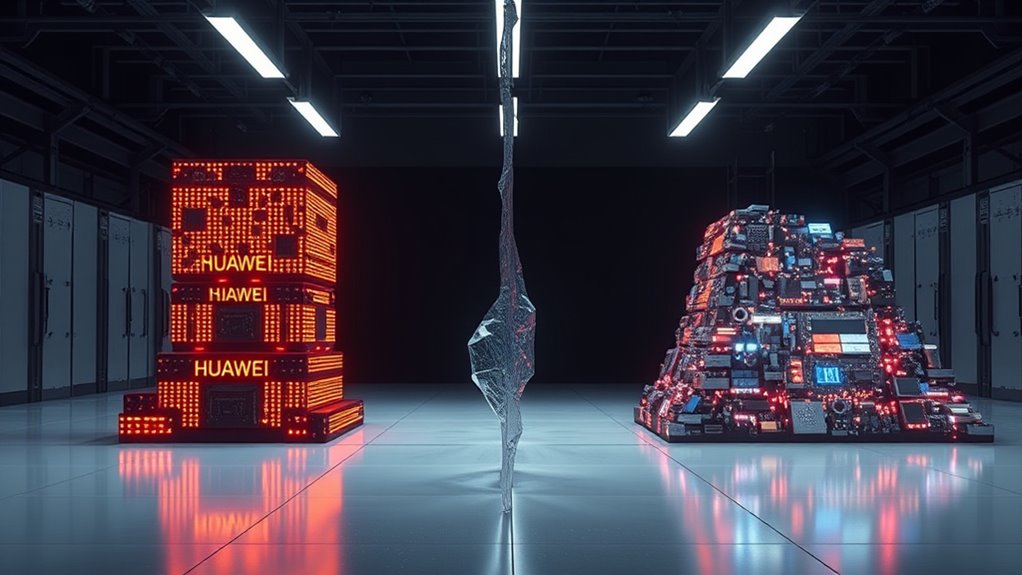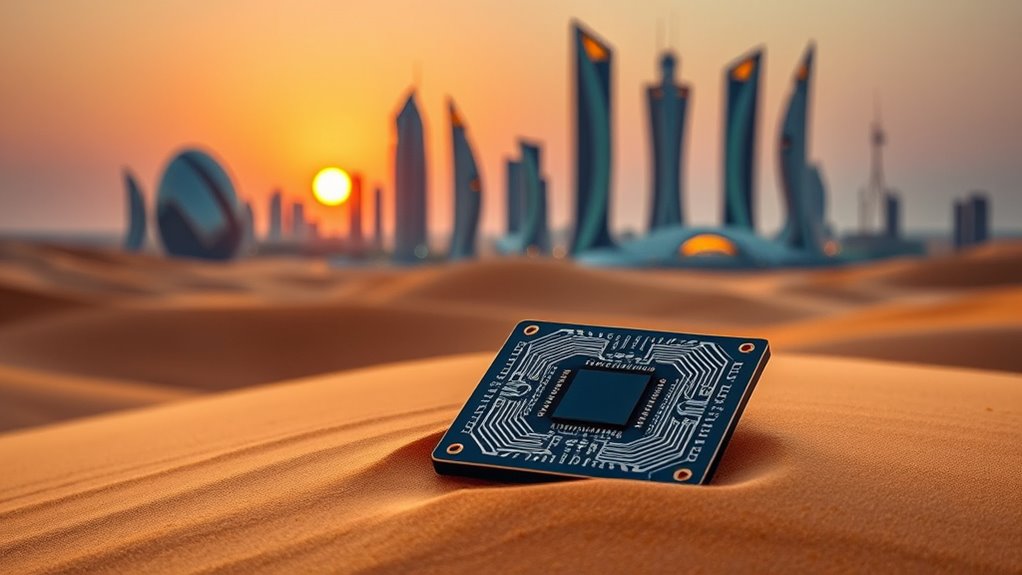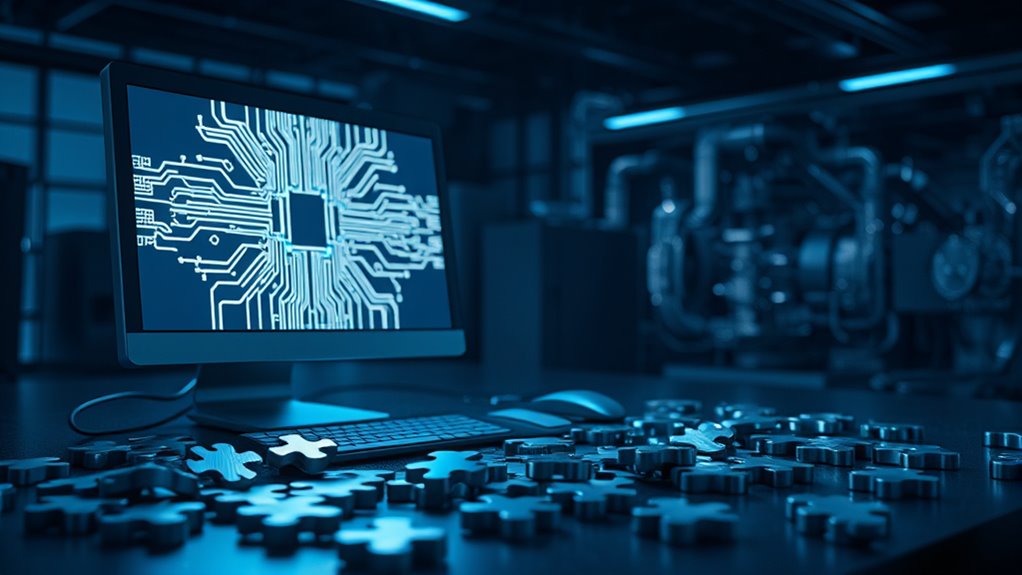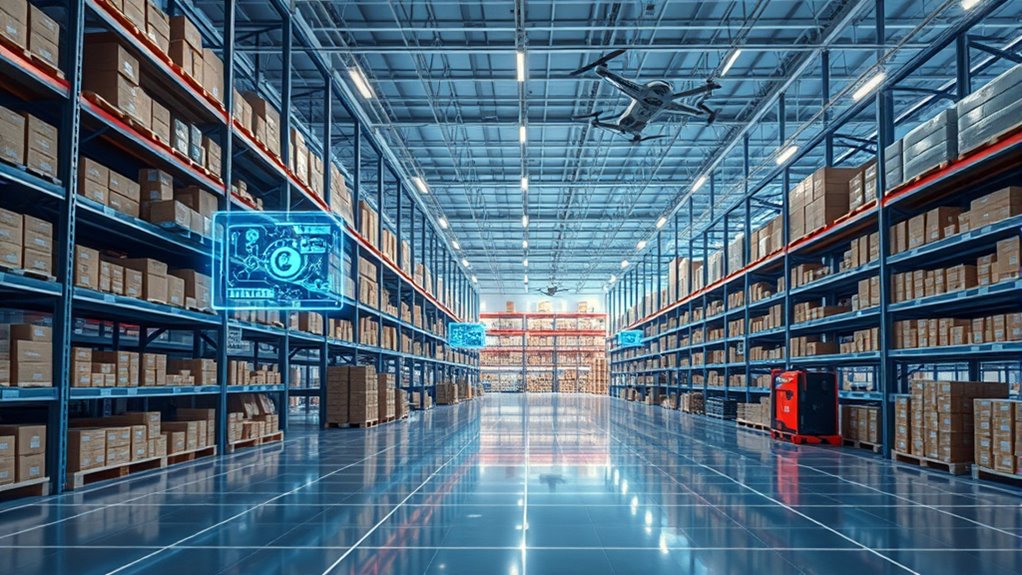While technology races forward, the U.S. is tightening rules on sending advanced AI chips to other countries. These strict export controls aim to stop powerful tech from reaching nations seen as threats. This means companies like Nvidia can’t easily sell their high-performance chips, such as the H20, in places like China. To follow these rules, Nvidia has to make weaker versions of their chips, which don’t perform as well as the originals. The U.S. also requires special licenses for exporting certain chips, making sales even harder for firms like Nvidia and AMD.
The U.S. tightens export rules on AI chips, forcing Nvidia to create weaker versions for markets like China, complicating sales with strict licensing.
These policies are shaking up the global market. They’re meant to limit the spread of cutting-edge computing power, but they might be helping competitors grow stronger. Huawei, a major Chinese tech company, is stepping up its game to challenge these restrictions. It’s building its own AI technology, like the Ascend 910C chip, to avoid relying on U.S. products. Huawei’s CloudMatrix 384 AI chip cluster offers huge computing power, sometimes even beating Nvidia’s systems, though it uses more energy and costs more to run. This push is making Huawei a big player in AI hardware, especially in China where U.S. chips aren’t available. Additionally, economists are concerned that such restrictions could lead to a significant economic slowdown in the semiconductor industry globally.
The broader impact of these rules worries the semiconductor industry. Many fear it could slow down new tech breakthroughs and mess up the global supply chain for AI chips. U.S. companies might lose money and market share as other regions with fewer rules could take the lead. There’s also a chance the future of AI chip making might shift away from the U.S. due to these tough policies. Nvidia has recently announced a massive $5.5 billion charge due to new licensing requirements for their H20 chips, highlighting the financial burden these restrictions impose. Moreover, the rapid evolution of AI technology raises concerns about potential catastrophic accidents if safety measures are not prioritized alongside these export controls.
On a bigger scale, these export limits tie into tensions between the U.S. and countries like China. They’re part of a strategy to protect U.S. national security by keeping advanced tech out of certain hands. But this could change how AI develops worldwide. Huawei’s rise might even lead it to set new international standards for AI hardware, something Nvidia and others are watching closely.
The tech world is at a crossroads, and these rules could shape its path for years to come.






